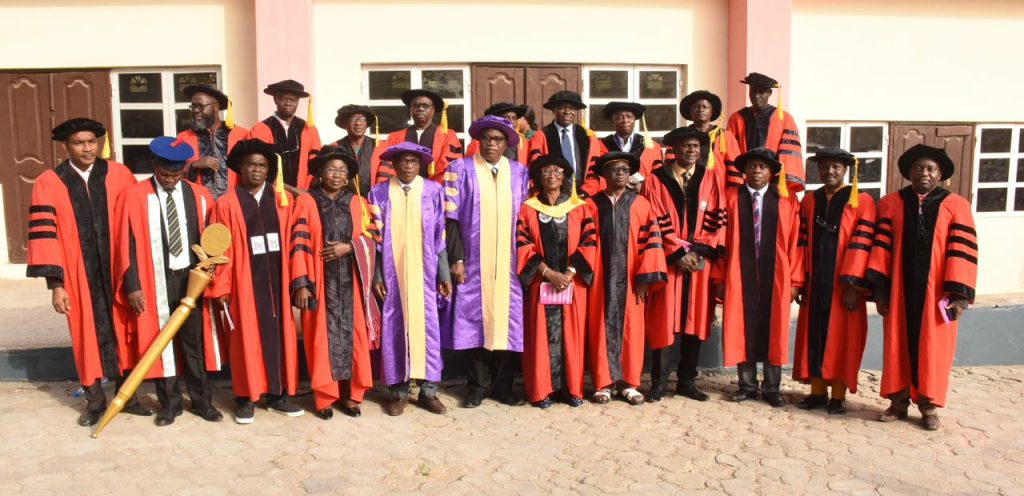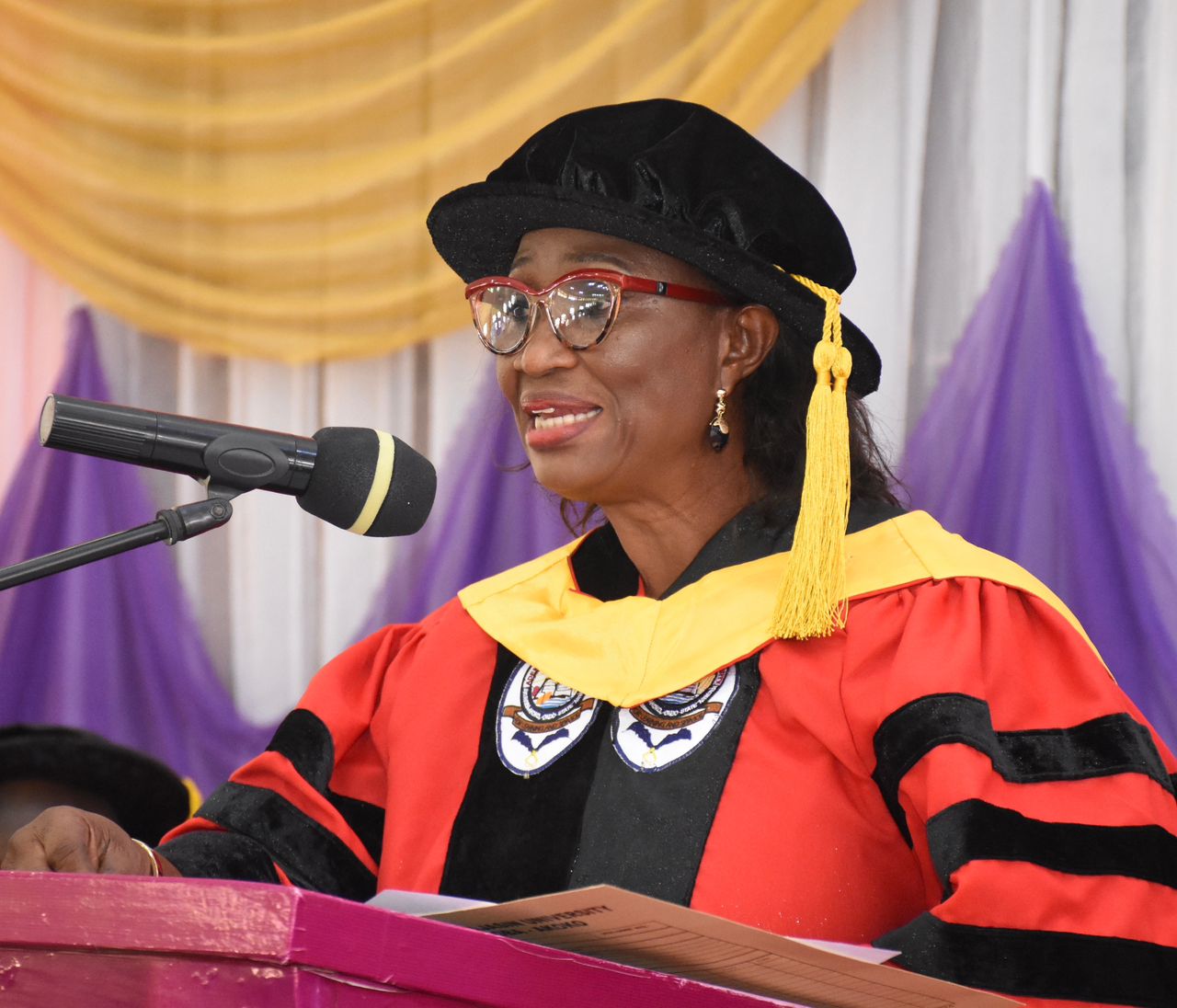Professor Comfort Akinfolarin, a distinguished scholar in Educational Management, has, on Tuesday, December 17, 2024, underscored the indispensable role of resource management in fostering qualitative and functional education.
Prof. Akinfolarin made the submissinnon while delivering the 31st Inaugural Lecture of Adekunle Ajasin University, Akungba Akoko, titled, “Resource Management: A Catalyst for Qualitative and Functional Education.
Noting the foundational importance of resources in all aspects of life, including homes and schools, Prof. Akinfolarin stated, “Functional and qualitative education makes a nation worthy of development; hence, the availability, utilization, and maintenance of resources are paramount.”
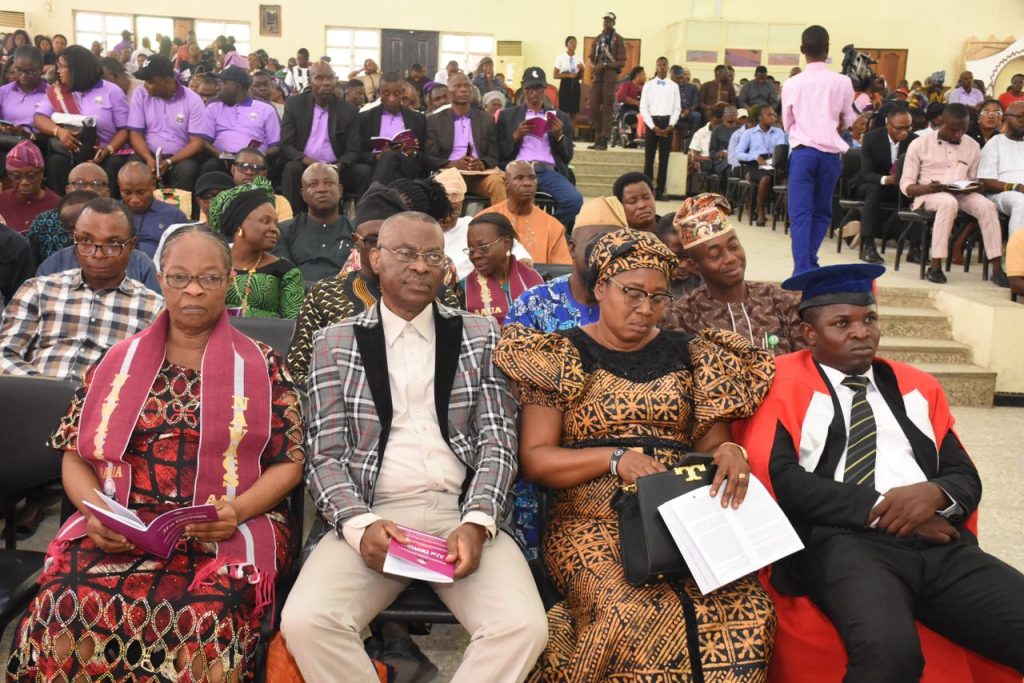
She emphasised education as a pivotal factor in national progress, calling for collective efforts from individuals, philanthropists, parents, religious institutions, government, non-governmental organizations, and international agencies to sustain and grow Nigeria’s educational system.
Prof. Akinfolarin proposed critical measures to improve the education sector of Nigeria, emphasizing increased government funding, efficient resource utilization, strong regulation, parental responsibility, sustainable projects, curriculum updates and industry collaboration.
She said, The contributions of individuals, philanthropist, parents, religious institutions, Government and Non-Governmental organisations and international organisations towards the growth and sustenance of functional and qualitative education in Nigeria cannot be over emphasized. The school system as an organisation where teaching, learning and research are carried out using all forms of education (formal, informal and non-formal) needs to be equipped with appropriate resources so as to make learners develop foundational skills; promote social and emotional development; encourage creativity, curiosity and build resilience.
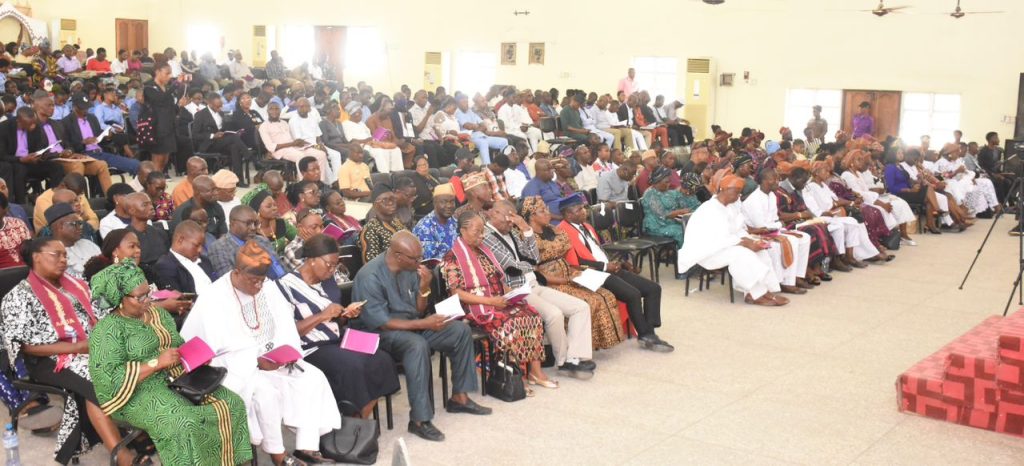
The don advocated stringent enforcement of laws against vices such as hooliganism, cultism, and armed robbery in academic settings, adding that Families must instill discipline, honesty, and a strong work ethic in children from an early age.
She recommended, The allocation budgeted and disbursed to education by the government should be greatly reviewed and increased. Specific purpose grants should be made available and monitored. To avoid wastage of available resources, proper utilization and management should begin with individuals, families and institutions.
Regulations addressing hooliganism, cult related activities and armed robbery, especially in our academic environments should be adequately enforced.
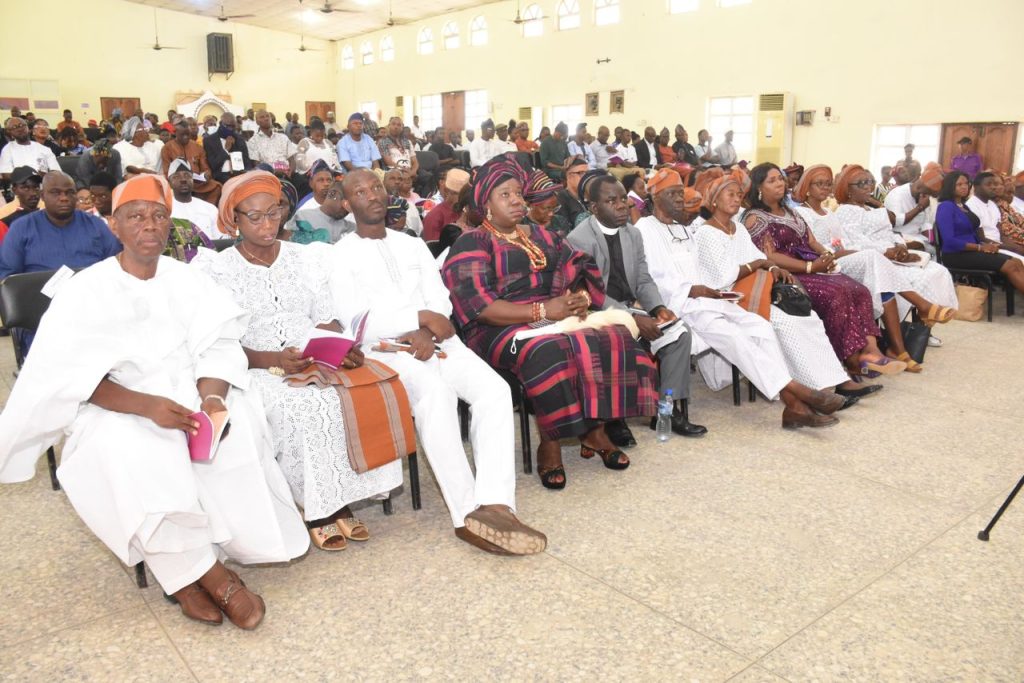
“Families should lay down strong cultured backgrounds for their children by imbibing discipline, honesty and encourage dignity of labour in the children.
Government should avoid white elephant projects, but instead provide only quality educational materials and should complete good structures laid down before their assumption of office and avoid starting projects they could not accomplish. Curriculum updates should be continuous. Educational institutions and the government need to collaborate with industries.”
She argued that despite the Federal Governments initiative of entrepreneurship education in Nigerian universities three decades ago, realising the uniqueness of qualitative and functional education, the entrepreneurship centres depend largely on availability, utilization, management and maintenance culture of resources.
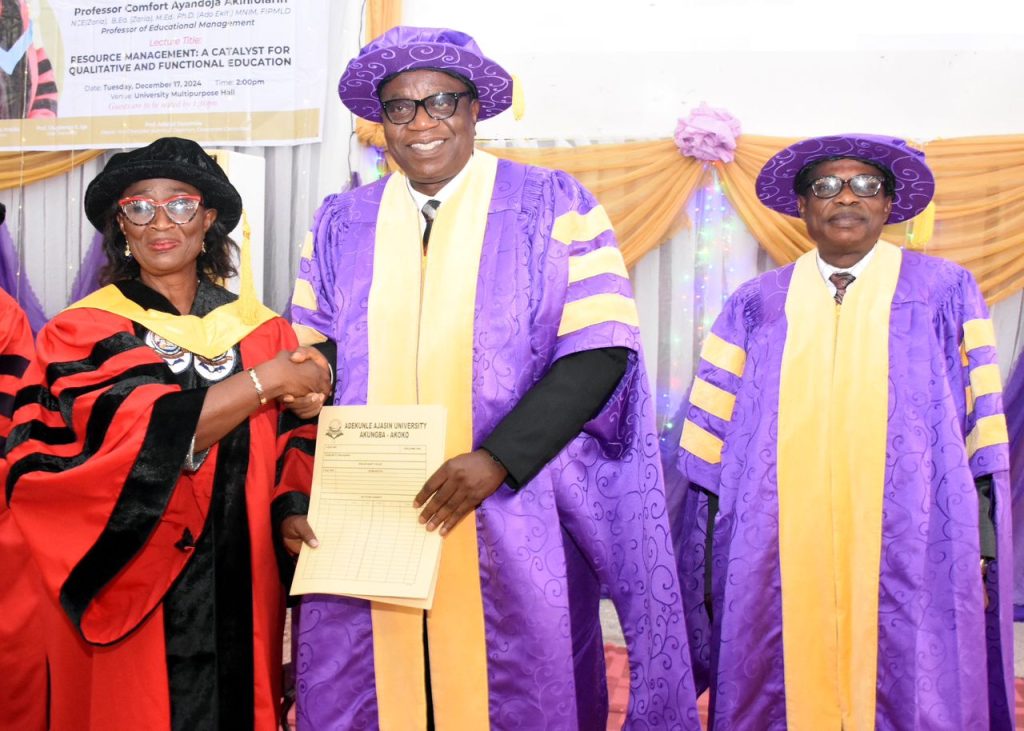
She added, Resources should be shared in unbiased proportions by the government and management bodies to ensure equality, fairness and healthy inclusive practices. In this ever changing world of technology and the Internet, individual managers should strive to acquire more knowledge about IT.
The professor of Educational Management lamented the alarming disparity in resource availability between public and private schools. Public schools in rural areas face acute shortages, from dilapidated buildings to inadequate laboratory equipment and a lack of qualified teachers, she said.
Prof. Akinfolarin emphasised the strategic role of Human Resource Management (HRM) in education, describing it as a vital driver for aligning workforce capabilities with institutional goals. “HRM functions such as planning, organizing, and motivating are essential for achieving functional and qualitative education,” she asserted.
Earlier, while introducing the Inaugural Lecturer, the Chairman on the occasion and Vice Chancellor, Prof. Olugbenga Ige, noted that inaugural lectures are opportunities for professors to share their research findings and ideas for the benefit of society and to propose solutions to societal needs.
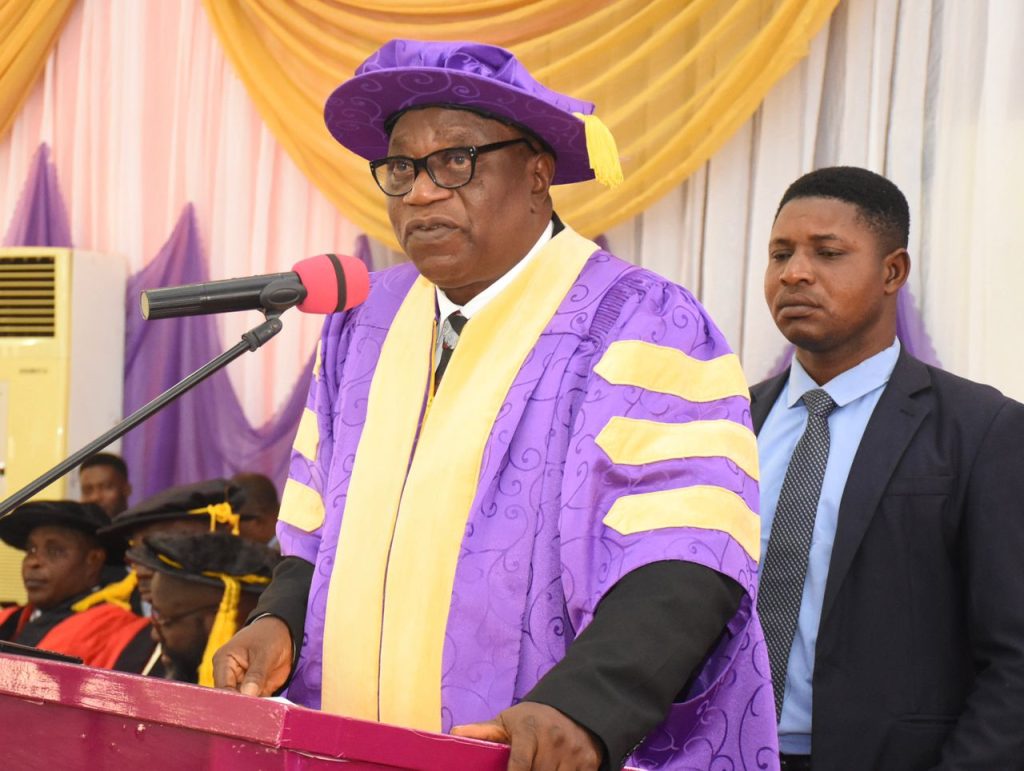
He acknowledged Prof. Akinfolarins resourcefulness to her field and immense contributions the academic community and society at large.
